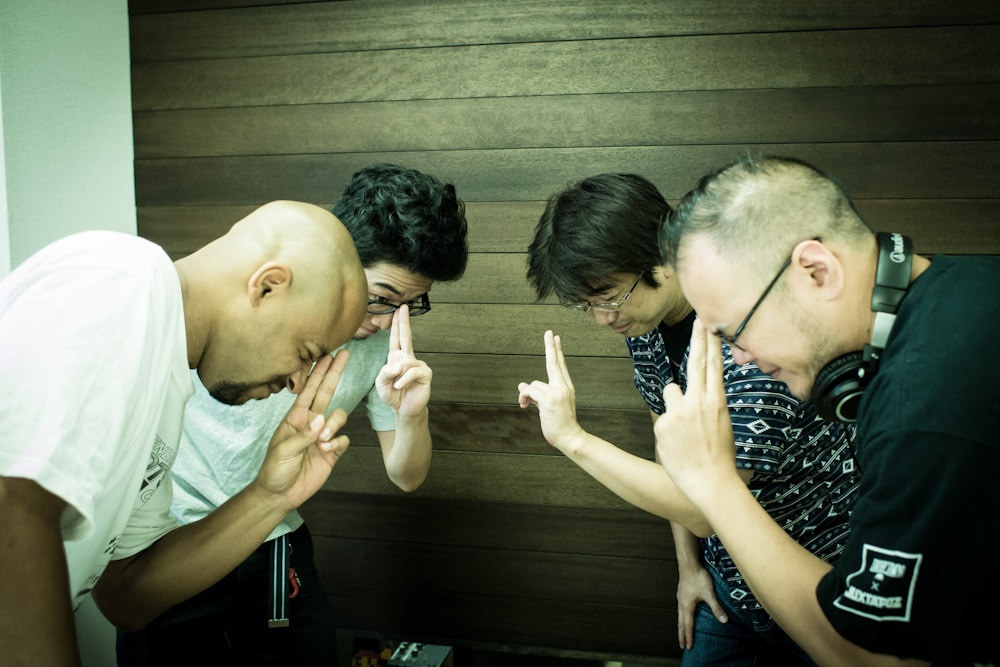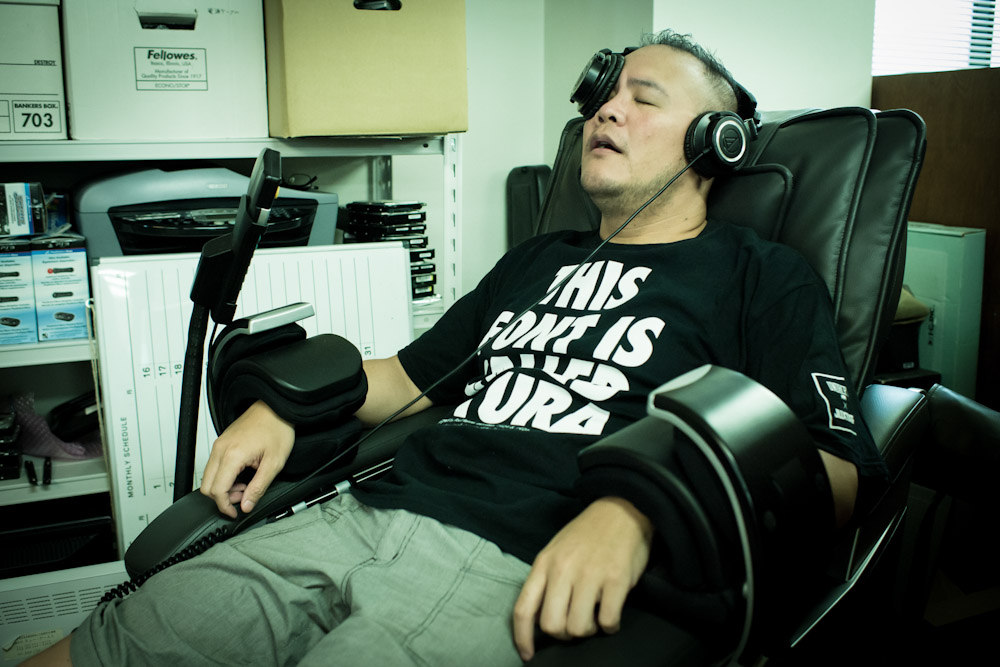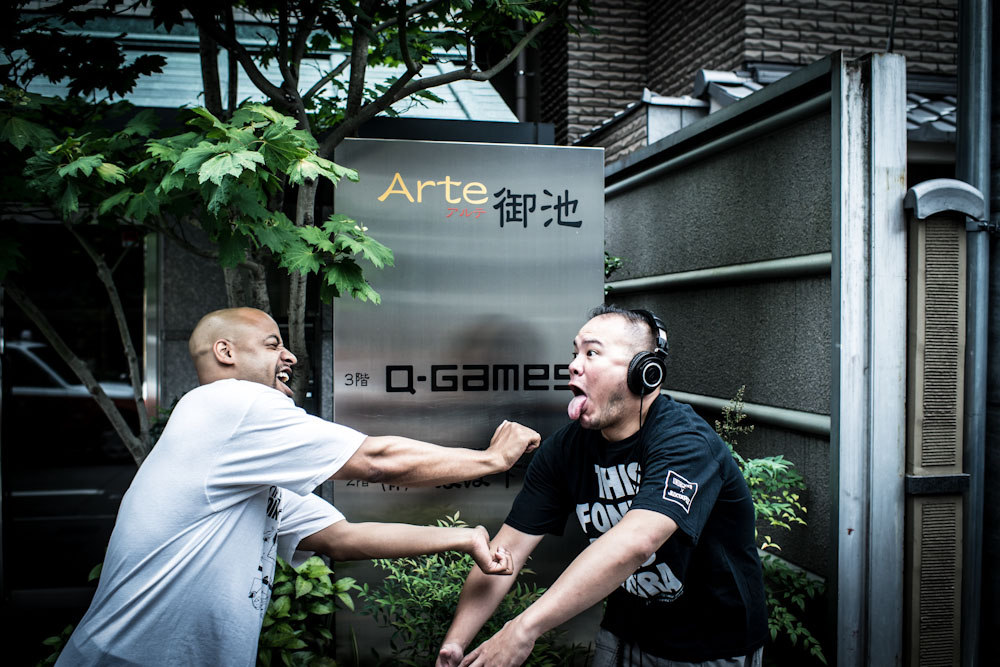Japantown: Living the Sweet Life in Kyoto
Q-Games' James Mielke returns to answer your questions about living and working in Japan.
As you read this, I will have tucked yet another month under my belt at Q-Games. Living in Kyoto is a big adjustment from living in Tokyo, and by "adjustment" I mean "getting used to living in a much more beautiful city." I've enjoyed the Tokyo lifestyle and atmosphere on and off for over 12 years now, and while Tokyo is definitely a lot of fun and offers an endless supply of distractions, I never thought it was the greatest city I'd ever been to. New York City still holds that appeal for me; Paris is a close second (and sometimes flip-flops with NYC depending on my mood). Now, after living in Kyoto for a couple of months, I can say with confidence that Tokyo has now slipped to fourth place.
A bunch of you had some questions about the logistics of moving to and getting a job in Japan. I'll do my best to answer these questions in broad strokes, but as with anything, remember that situations vary depending on the context. There are never any absolutes (though I believe if you're really determined you can overcome any obstacle), and I can speak only from personal experience.
One GameSpot reader mentioned a podcast from the past in which I moaned about the massive hills of Yokohama, and presumed that I no longer miss those hills. Well, yes, I can confirm that I do not miss those goddamned hills, although they probably did the most work keeping the inches off my waistline. Now, I live in the wonderfully flat and exceptionally organized city of Kyoto, which features a grid-based street layout and roads so flat you could drop your marbles without fear of losing them to the gutter. Since the Q-Games office is a straight shot across town from my house, if I'm really cookin' on my bicycle, I can go from door to door in about 10 minutes--15 tops. Those were some bona fide kung-fu training hills; I don't miss them one bit.
Another reader wanted to know how big the teams in the Q-Games office are. Well, without giving too much away, we have a few teams, ranging from "small," to "slightly less small but still small," to "much bigger but smaller than the Call of Duty team by a long shot." Communication is rarely an issue because we all sit in close proximity to each other on the same floor, and we have an instant messenger chat system in place that lets us interact easily and spam YouTube links. In some cases I've developed an almost telepathic sense of what someone's typing, as is almost always the case with my coworker Jaymin, who sits directly to my left. He types like a velociraptor with dead nerve endings and a grudge.
To answer the question of whether or not we'll revive the Q-Games podcast: Yes, we are in the process of reviving PixelJunk Radio, and the first new episode should be available soon. Expect an international blend of high-octane nonsense when listening.
An altogether different reader inquired about my relocation to Japan and how I ended up here. Well, since I am undoubtedly running out of word count, I'll try to make it as concise as possible. In my decade-plus on the editorial side of the gaming industry, I forged a lot of relationships, via media events and interviews. It was never my intention to use this access as a gateway into development, but once you interview the same people enough times you inevitably begin to form bonds, and I am hardly the only example of a journalist making the transition into game development. But as I grew to know various developers better and better over the years, and as the trust level grew, this eventually led to the invitation to join some development teams. Although my first invitation to jump into development came my way in 2001, it wasn't until 2009 that I finally felt that the time was right. So, having accomplished pretty much everything I'd wanted to do in editorial, I packed up my things and moved to Q Entertainment in Tokyo to expand my work experience and to create games that people would play. Now, having been on this side of the industry for a few years, it's pretty awesome to know that hundreds of thousands of people have played something I've been a part of, just as how shipping a new magazine to the printers and seeing the finished product on newsstands used to be awesome as well.
'The same reader also asked if (1) it's expensive to move your belongings from the US to Japan; (2) how I accomplished such a thing; (3) if I had a job waiting for me before I moved; and (4) if I had to speak Japanese at work. In order: Yes, it is very expensive to move to Japan. Hell, it's expensive to move to another state in the States, so just imagine moving to another country. The plane ticket alone costs $800 to $2,000 depending on when you go, and the cost of moving an entire apartment's worth of stuff to Japan can run you around $10,000 or more--not counting what you might have to put in storage. Combine that with the extreme Japanese real estate practices of expecting five to six months' worth of rent up front, and your whole move can cost $15,000 to $20,000. Of course, if you just bring the clothes on your back and a suitcase of stuff, it'll be significantly cheaper, but it's still a big commitment. I recommend traveling light, but this wasn't really an option for me since I moved to Japan with my pregnant wife. If you're looking to move here, I would advise at least asking your prospective employer if they have a relocation package to assist future employees in their move to Japan.
I had a job before I moved, or I would not have moved to Japan. There's no way I could afford to relocate to another country and then hope to find employment. That is just not good common sense. Accomplishing this task took a mighty combination of things, with the most crucial being having someone who can speak and read Japanese to help you out. Getting a work visa, an apartment, and setting up utilities like electricity, mobile phone, Internet service, and more takes a lot more paperwork here than it does anywhere else I've lived. You would be stunned at how much Japan loves paperwork, and without my wife taking care of this stuff (she's from Japan), I don't think I could have survived the avalanche required to establish yourself here.
Do I need to speak Japanese at work? Well, in my case, initially, it was less of a deal breaker than most future expats will likely experience (Q Entertainment had so many English speakers that it provided a really gentle landing into a new culture), but it's really important to be proficient in the language if you plan on communicating with anyone. You can't expect to speak English wherever you go and hope to be understood. That's just arrogant. At Q-Games, we still have a lot of English-speaking staff here (it's very international here, surprisingly), but the need for communicating here in the Japanese language is very important. 
Since I've been at Q-Games I've found myself in a lot of roles, which is good because I prefer being busy rather than having nothing to do. I'm working on multiple game projects (shameless plug: did you know PixelJunk Monsters Online is playable on Facebook?) and also working on PR and marketing-related efforts. Speaking of which, having arrived over a month after the launch of Q's latest release, PixelJunk 4am, I've discovered that it has been a notable challenge getting postlaunch coverage (read: reviews) on websites and into magazines. Having myself been on the media side of things, and after exploring a lot of reasons that could factor into this, I've come to the personal conclusion that (1) because PixelJunk 4am doesn't have a traditional beginning, climax, and ending it is difficult for more conventional reviewers to get to grips with this innovative title, and (2) since 4am offers a nightlife atmosphere immersed in minimal house music, the reviewer's attention level may fluctuate based on his interest in this genre of music.
So a good chunk of my time so far has been spent coming up with interesting ways to expose the game to more people from a grassroots level. Q's PR dude, John Davis, and I have spent weeks working with the Q team to cook up a way to showcase 4am's best players, and on that note I'm happy to announce that we'll be unveiling a cool new competition based around the game featuring some pretty nice rewards and a rare, once-in-a-lifetime opportunity to put your stamp on a future PixelJunk game. So stay tuned to GameSpot for more details in the near future. For those of you who have already bought PixelJunk 4am, warm up those Move controllers, practice your transitions, and get ready, because you'll be wanting to put on a performance! See you in 30.
'Got a news tip or want to contact us directly? Email news@gamespot.com


Join the conversation